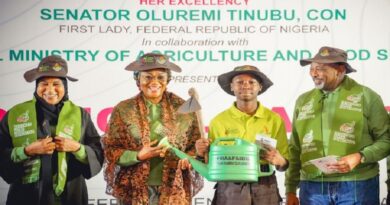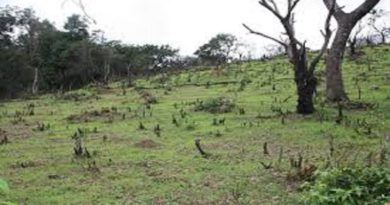UNEP welcomes decision to create world’s largest marine sanctuary in Antarctic’s Ross Sea
The United Nations Environment Programme (UNEP) welcomed a unanimous decision today from the Commission for the Conservation of Antarctic Marine Living Resources (CCAMLR) to create the world’s largest protected area – land or marine – in the Antarctic’s Ross Sea.
“We are thrilled that this very special part of our planet’s oceans has been safeguarded for future generations,†said Executive Director of UN Environment Erik Solheim in a press release.
“We are especially proud of our Patron of the Oceans Lewis Pugh, who shuttled between the nations to help find consensus. Today’s result is a testament to his determined efforts,†added Mr. Solheim.
Mr. Pugh, an ocean advocate, maritime lawyer, and endurance swimmer said he was “overjoyed.†He was the first person to complete a long-distance swim in every ocean of the world, and he regularly swims in different ecosystems in order to draw attention to environmental concerns.
“The Ross Sea is one of the most magnificent places on Earth. It is one of our last great wilderness areas. This is a dream come true,†he added.
The Ross Sea is considered to be the last great wilderness area in the world and is known as the polar ‘Garden of Eden.’ It is 1.57 million kilometres in area – larger than the United Kingdom, France, Germany, and Italy together – and will be protected from industrial fishing, which has had devastating effects on seas elsewhere around the world.
According to David Ainley, the American scientist who was the first to call for a marine protected area 14 years ago, “The Ross Sea is one of the most pristine marine ecosystems left on Earth, and home to many species found nowhere else.â€
“The data collected from this ‘living laboratory’ helps us understand the significant changes taking place on Earth right now. The Ross Sea has much more value as an intact marine ecosystem than as a fishing ground,†he added.
The Ross Sea is home to 50 per cent of ecotype-C killer whales (the Ross Sea orca), 40 per cent of Adélie penguins, and 25 per cent of emperor penguins.
Mr. Pugh’s efforts as UNEP’s Patron of the Oceans and an ocean advocate have involved a series of swims in the Ross Sea in order to raise awareness about the need for conservation. He also visited Moscow in February 2015 in order to convince Russian officials to endorse the protected area. Previously, Russia had blocked the proposal five times. The media referred to Mr. Pugh’s work as “Speedo diplomacy†because of his ability to survive Antarctic waters with nothing more than a pair of swimming trunks.
“Today’s announcement marks an important moment in the history of conservation,†remarked Mr. Pugh. “The High Seas represent 45 per cent of the Earth’s surface. But they are largely unprotected and are facing rampant overfishing. This is a crucial first step in what I hope will be a series of marine protected areas around Antarctica, and in other parts of the High Seas around the world.â€
He celebrated the fact that Russia, the United States, the European Union, and other CCAMLR nations were able to reach such an agreement during a period of strained political relations.
“In 1959 at the height of the Cold War,†he said, “Antarctica was set aside as a place for peace and science. Today’s announcement shows that Antarctica continues to be a place for peace and bridge building, a place where we can find common ground. My hope is that what has been achieved here can be used to foster dialogue and cooperation in other parts of the world.â€
According to the Commission, Marine Protected Areas aim to provide protection to marine species, biodiversity, habitat, foraging and nursery areas, as well as to preserve historical and cultural sites. MPAs can assist in rebuilding fish stocks, supporting ecosystem processes, monitoring ecosystem change and sustaining biological diversity.




